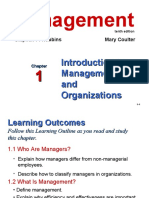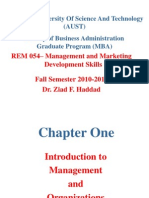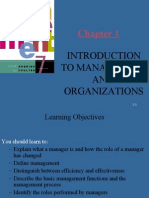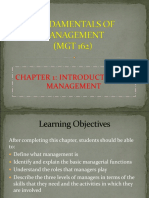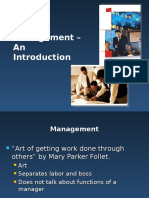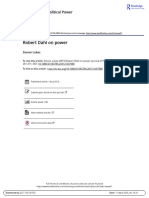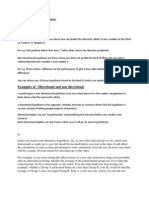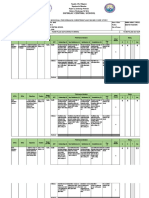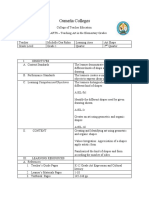0% found this document useful (0 votes)
56 views37 pagesIntroduction To Principles of Management
The document provides an overview of principles of management concepts including defining management, describing managerial roles and skills, and outlining the key topics to be covered in the course. The course will address principles of management, planning, organizing, leading, and recent concepts. Student assessment will include quizzes, midterm, assignments, and a final exam.
Uploaded by
Rana TouseefCopyright
© © All Rights Reserved
We take content rights seriously. If you suspect this is your content, claim it here.
Available Formats
Download as PPTX, PDF, TXT or read online on Scribd
0% found this document useful (0 votes)
56 views37 pagesIntroduction To Principles of Management
The document provides an overview of principles of management concepts including defining management, describing managerial roles and skills, and outlining the key topics to be covered in the course. The course will address principles of management, planning, organizing, leading, and recent concepts. Student assessment will include quizzes, midterm, assignments, and a final exam.
Uploaded by
Rana TouseefCopyright
© © All Rights Reserved
We take content rights seriously. If you suspect this is your content, claim it here.
Available Formats
Download as PPTX, PDF, TXT or read online on Scribd
/ 37

















